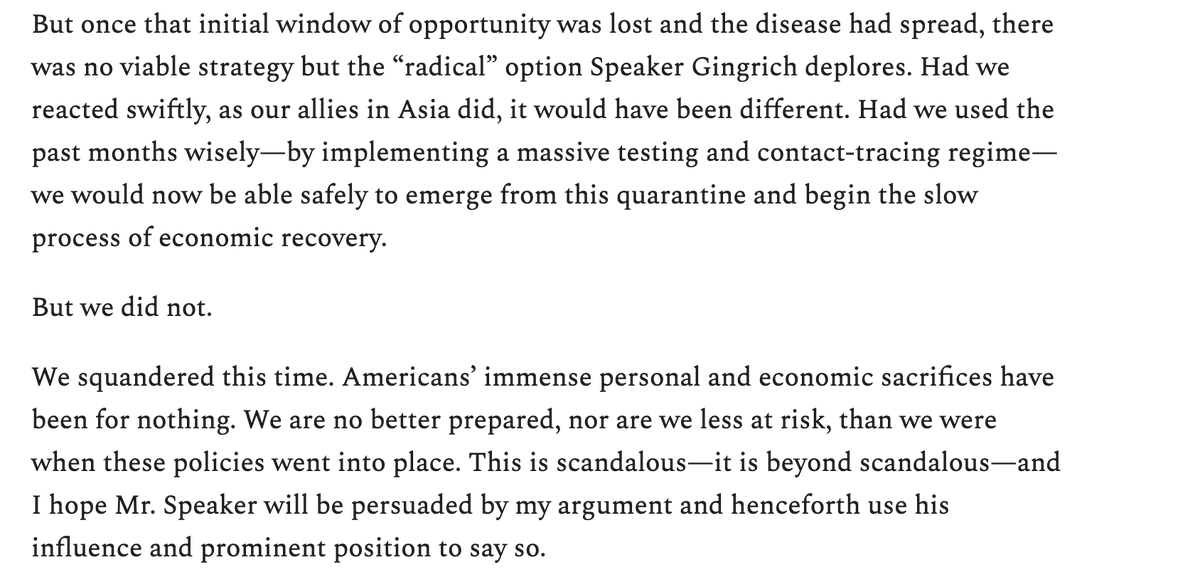
I'm just going to call attention to this again, because it's really bizarre. In May, I sent out a series of newsletters, deploring our hysterical culture, titled "The Years of Living Hysterically." claireberlinski.substack.com/p/the-years-of…
https://twitter.com/ClaireBerlinski/status/1316302846787280896
Gingrich subscribes to my newsletter. In May, I was pleasantly surprised—if puzzled—to see a recent surge in subscribers. Then I saw why. Newt Gingrich had recommended my newsletter on Fox News.
I was dismayed, however, when I read the column, as I explained: claireberlinski.substack.com/p/welcome-frie…. I was discussing hysteria in the context of the Me Too movement. He felt the notion of the "hysterical culture" explained what--at the time--he thought a hysterical overreaction to Covid-19.
The column has since vanished without a trace from Fox, but it's been archived, here: Wait a bit to let it load. web.archive.org/web/2020092916… 

He *specifically denounced* not only the projection that 2.2 million Americans could die in the pandemic but the modelers themselves. 



He described the influence of these "supposedly expert modelers" as a "great scandal" requiring "congressional hearings into their destructive impact." He claimed the modelers "completely misinformed government leaders, the news media and ultimately the public."
I can't quite remember what transpired after that, but I believe he wrote to me to express disappointment that I'd failed to understand his argument. I didn't think about it again.
But today, the earlier column having gone down the memory hole--
But today, the earlier column having gone down the memory hole--
he's published an article arguing that Trump saved two million lives from Covid-19. He writes: "Biden and Harris—and their media allies—are completely ignoring that the early estimates from our country's top epidemiologists" ... well, read for yourself: 

This is astonishing. He's gone from denouncing these epidemiologists as "supposed experts," panic-mongering frauds, and quacks--who should be grilled by Congress for fomenting panic--to using their estimates as the gravamen of his argument that Trump saved 2.2 million lives.
And the original article has disappeared. No correction, no explanation: It's just not there anymore. When the NYT changes the text introducing the 1619 project without explanation, it is, rightly, pilloried for its bad faith.
But this is something way beyond the NYT's efforts to tone down the more fantastic claims in the article. This is a prominent public figure making *exactly the opposite* claim he made just a few months ago, as if he'd never made it.
I remember it extremely well, of course, because he mentioned me in that article. If he'd written, "I've since changed my mind about this, owing to Claire Berlinski's arguments," well--great. But that's not what happened.
It's a level of political cynicism and journalistic impropriety that really takes me aback. And I don't understand it, frankly. Why would he squander his credibility and reputation to defend Trump? Trump, assuredly, wouldn't do it for him.
Wouldn't you imagine he'd be trying now to swim away from the sinking ship as fast as possible? Why run interference for a President who is *rightly* headed for defeat after the deaths of 215,000 Americans, with many more to come?
• • •
Missing some Tweet in this thread? You can try to
force a refresh














